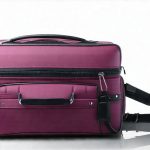Recurrent urinary tract infections (UTIs) can significantly impact quality of life, creating anxiety not just during flare-ups but also when planning enjoyable activities like travel. For individuals who experience frequent UTIs, the prospect of being away from familiar routines and healthcare resources can feel daunting. However, with careful preparation and proactive strategies, it’s entirely possible to minimize risk and confidently embark on travel adventures. This article will explore comprehensive safe travel planning tailored for those managing recurrent UTIs, focusing on preventative measures, what-if scenarios, and practical steps to ensure a smoother, healthier journey. We aim to empower you to enjoy your travels without constantly worrying about UTI symptoms disrupting your plans.
The key is understanding that prevention is paramount when dealing with recurring infections. Travel often introduces changes – different foods, varying hydration levels, altered bathroom facilities, and potential stress – all of which can contribute to UTI development in susceptible individuals. It’s not about eliminating travel altogether but rather adapting your approach to mitigate these risks. This involves a combination of lifestyle adjustments before, during, and after your trip, as well as packing appropriately with essential supplies. Remember that consistency is critical; maintaining established preventative habits even when on the move will greatly increase your chances of staying healthy and enjoying your travels without interruption.
Pre-Travel Preparation & Proactive Steps
Planning ahead is crucial for minimizing UTI risk during travel. This isn’t simply about packing medications; it’s a holistic approach that addresses potential triggers and strengthens preventative measures. Begin by consulting with your healthcare provider well in advance of your trip – ideally several weeks beforehand. Discuss your travel plans, including destination, duration, and planned activities, to receive personalized advice tailored to your specific situation. Your doctor can review your existing UTI prevention strategies (such as D-mannose supplementation or post-coital antibiotic prophylaxis) and determine if any adjustments are needed for your trip.
A crucial aspect of preparation involves optimizing hydration habits before you leave. Start increasing your water intake in the days leading up to your travel date, ensuring you’re well hydrated before even stepping onto a plane or starting a road trip. Consider what bathroom facilities will be like at your destination – are they generally clean and accessible? If traveling internationally, research local hygiene standards. This can influence packing choices (e.g., bringing antibacterial wipes). Finally, think about potential stressors related to travel itself, such as flight anxiety or jet lag, and develop coping mechanisms to manage these effectively. Stress weakens the immune system, potentially increasing susceptibility to infection.
Proactive steps aren’t limited to physical health; mental preparation is also vital. Having a clear plan for managing potential symptoms while traveling can significantly reduce anxiety. Know where the nearest pharmacies and healthcare facilities are located at your destination, and familiarize yourself with any travel insurance coverage you have. Preparing a small “UTI emergency kit” (discussed later) will provide peace of mind and allow you to respond quickly if needed. The goal is to feel confident and prepared, minimizing stress and maximizing enjoyment on your trip.
Building Your UTI Emergency Kit
A well-stocked UTI emergency kit is an essential component of safe travel planning for those prone to recurrent infections. This isn’t about self-treating a full-blown infection while traveling – it’s about having resources available for early intervention and symptom management until you can access proper medical care if needed. Here’s what your kit should ideally include:
- Over-the-counter pain relief: A mild analgesic like ibuprofen or acetaminophen can help manage discomfort associated with UTI symptoms, such as pelvic pain or burning sensation during urination.
- Hydration aids: Electrolyte packets or tablets are useful for replenishing fluids and electrolytes lost due to increased urination or potential dehydration, especially during air travel or in hot climates.
- D-mannose capsules: For individuals who find D-mannose helpful in preventing UTI recurrence, including a sufficient supply is recommended (consult your doctor regarding appropriate dosage).
- Antibacterial wipes/hand sanitizer: Maintaining good hygiene can help reduce the risk of introducing bacteria into the urinary tract.
- Urinary antiseptic: While not a substitute for antibiotics, over-the counter urinary antiseptics may offer some symptom relief – discuss suitability with your doctor.
- Contact information: Include contact details for your healthcare provider, travel insurance company, and emergency services at your destination.
- A small notebook & pen: For tracking symptoms, fluid intake, and any medications taken.
Remember to check expiration dates on all items in your kit before traveling. Also, be mindful of airline regulations regarding liquid restrictions when packing electrolyte solutions or other liquids. The point isn’t to diagnose or treat a UTI yourself; it’s about having tools to manage discomfort and potentially mitigate early symptoms while seeking appropriate medical attention.
Hydration Strategies On the Go
Maintaining adequate hydration is arguably the most important preventative measure for travelers prone to UTIs. However, staying hydrated can be challenging when traveling – especially during air travel or in unfamiliar environments. Here are some strategies to ensure you’re drinking enough fluids:
- Carry a reusable water bottle: Having a readily available source of water encourages frequent sipping throughout the day.
- Set reminders: Use your phone or watch to remind yourself to drink water at regular intervals, especially during long journeys.
- Choose hydrating beverages: Water should be your primary choice, but herbal teas (non-caffeinated) and diluted fruit juices can also contribute to hydration. Avoid excessive caffeine or alcohol, which can have diuretic effects.
- Be mindful of climate: Adjust your fluid intake based on the climate – you’ll need more water in hot, humid environments.
Air travel is particularly dehydrating due to low humidity levels in airplane cabins. Drink at least 8 ounces of water for every hour of flight. Similarly, if engaging in physical activity or spending time outdoors in warm weather, increase your fluid intake accordingly. Don’t wait until you feel thirsty to drink; thirst is often a sign that you’re already mildly dehydrated.
Bathroom Breaks & Hygiene Practices
Frequent and complete bladder emptying is another cornerstone of UTI prevention. When traveling, this can be more challenging due to limited access to clean restrooms or time constraints. Here’s how to prioritize bathroom breaks and maintain good hygiene:
- Don’t hold it: Urinate when you feel the urge, rather than delaying until later. Holding urine for extended periods allows bacteria to multiply in the bladder.
- Complete emptying: Take your time and ensure you’ve fully emptied your bladder each time you urinate.
- Wipe front to back: After urination and bowel movements, always wipe from front to back to prevent bacteria from the intestinal tract contaminating the urethra.
- Consider peri-care wipes: If concerns about restroom cleanliness exist, use antibacterial peri-care wipes after using the toilet.
- Post-coital voiding: If you engage in sexual activity while traveling, urinate immediately afterward to help flush out any bacteria that may have entered the urethra.
These seemingly small habits can make a significant difference in reducing your risk of developing a UTI during travel. Prioritize them consistently throughout your journey, even when faced with inconvenience or time pressures.
It’s crucial to remember that this information is for general knowledge and informational purposes only, and does not constitute medical advice. It is essential to consult with a qualified healthcare professional for any health concerns or before making any decisions related to your health or treatment.





















